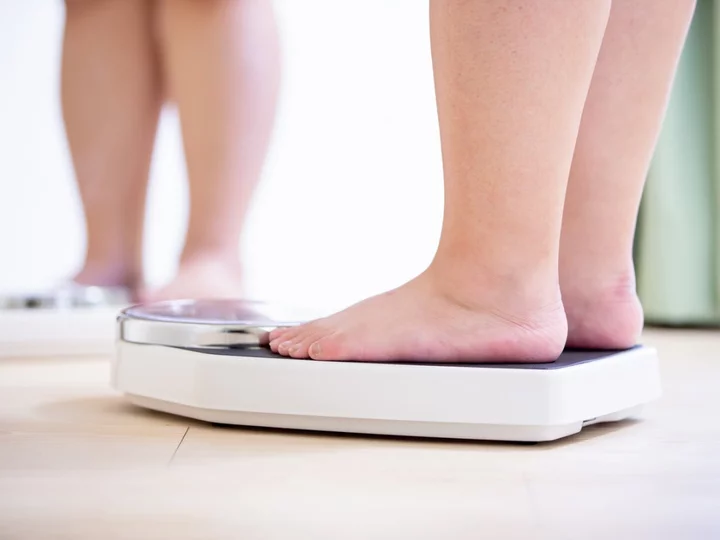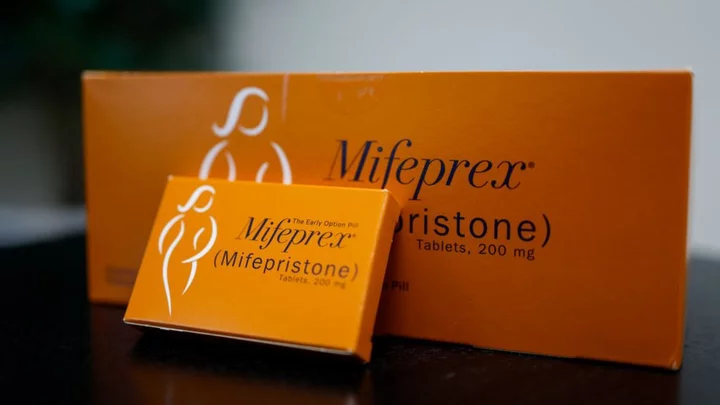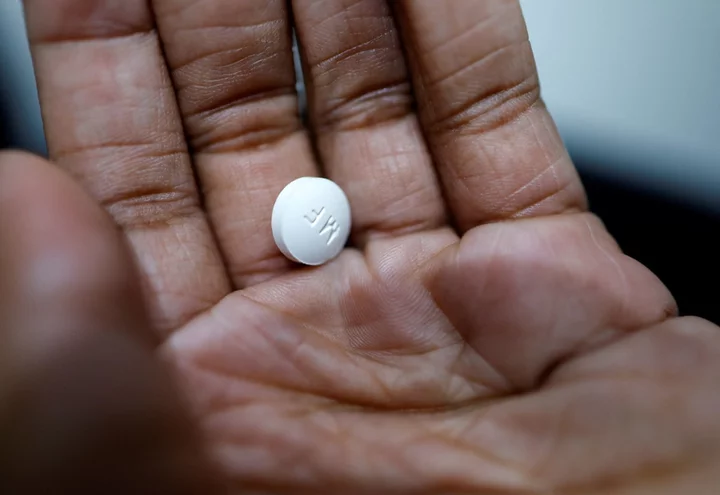
Uganda’s Anti-LGBTQ Bill Threatens Tourism as Well as Lives
Ugandan LGBTQ rights activist Clare Byarugaba was looking forward to showing her country off to her French partner’s
2023-05-18 15:45

Rachel Weisz opens up about suffering miscarriage for first time
Rachel Weisz has revealed that she suffered a miscarriage in the past, while speaking about her new series Dead Ringers. The actor, 53, discussed the negative reaction to scenes of childbirth and baby loss in the show. Weisz plays twin gynaecologists in the series, which is gender-reversed remake of the 1988 horror of the same title. Speaking to Emily Maitlis and Jon Sopel of The News Agents podcast, Weisz, who is married to fellow actor Daniel Craig, said she was “surprised” by the reaction, adding: “I was just telling this story about the female experience and it didn’t seem to have been like heightened or overdramatised. “Women had miscarriages, I’ve had a miscarriage, so you suddenly see blood coming out of your body and these are just all part of a female experience of being alive.” Weisz, a mother-of-two who prefers to keep her personal life out of the public eye, did not offer further details about when her miscarriage occurred. She continued: “I think we’re not used to seeing any of those things being represented cinematically or fictionally. So maybe this is breaking some new ground, this show.” The Favourite star also gave her thoughts on US anti-abortion activists who believe in the death penalty. “Both ends of life have different rules, it is very strange,” she said. “Children have to be born but there’s going to be no free healthcare for them. There’s no free schooling for children under the age of five. “And now every day, there seems to be more and more of a chance that you might get shot by an assault rifle at school. You can take life at the end of life; the government can choose to say you deserve to die. But at the beginning of life, a woman has no choice. How do you rationalise that?” Last month, the actor addressed the graphic birthing scenes in the first episode of Dead Ringers, describing them as “beautiful”. Speaking on BBC’s Woman’s Hour, she said: “[Writer Alice Birch] and I were really interested in showing birth in the first episode. I think we felt like it was something we don’t often see. “We’re incredibly used to seeing violence and people being killed, death, blood surrounding that. We’re almost immune to that at this point. For me, it’s a beautiful moment. It’s something we’re really interested in showing.” Weisz shares 16-year-old son Henry with former partner Darren Aronofsky and four-year-old daughter Grace with husband Craig. She married Craig, 55, in 2011 in an intimate ceremony in New York with just four guests in attendance. The James Bond star also has a daughter from his previous marriage to Fiona Loudon. Read More Grandmother praised for refusing to babysit daughter’s newborn unless she’s paid $20 an hour Denise Welch recalls losing ‘sense of reality’ from post-natal depression: ‘The most terrifying thing’ Chrissy Teigen praised for thanking team of four nannies in Mother’s Day tribute Grandmother praised for refusing to babysit daughter’s newborn for free Teenagers with obesity should be offered weight loss drug, say experts Women urged to check blood pressure – here’s what you need to know
2023-05-18 15:15

Derby £2 bus man plans two-and-a-half-day journey to Poland
"Bus adventurer" Andrew Cowell says he plans to use £2 buses and a coach to reach Krakow.
2023-05-18 13:54

Teenagers with obesity should be offered ‘transformative’ weight loss injection, say experts
Teenagers should be offered a “transformative” anti-obesity treatment to help them lose weight, experts have said. Academics said that the weight loss injection semaglutide could help adolescents with obesity to shed pounds after a new study found an average weight loss of 40 pounds (18 kilos). Teens living with obesity were offered the semaglutide drug for more than a year in a new clinical trial. The study, published at the European Congress on Obesity in Dublin and the journal Obesity, found that 45 per cent of teens using the appetite suppressant drug were no longer classed as obese 68 weeks after starting treatment. This is compared to 12 per cent in a group who were taking “dummy” drugs – also known as placebos. Some 19.5 per cent dropped down into the “overweight” category and a quarter (25.4 per cent) were able to reduce their BMI into the “normal” weight category, the conference heard. The average reduction in body weight with semaglutide – sold under the brand name Wegovy – compared to placebo was about 40 pounds (18 kilos), researchers said. Many do very well with this medication though, and it can be life-changing for them Dr Aaron Kelly, University of Minnesota The authors of the paper conclude that “semaglutide represents an efficacious treatment option for adolescents with obesity”. But presenting the study, Dr Aaron Kelly, from the University of Minnesota Medical School in Minneapolis, USA, said that it should be taken as part of a package of measures to help teens living with the condition. He said that the earlier the treatment starts “the better” to prevent further weight gain. But he said that treatment should be taken long-term, as would be expected with other chronic conditions. Dr Kelly told reporters that there were side effects – mostly of nausea and vomiting – but these were “transient” and most dissipated over time. If you engage in treatment that’s effective, you’ll see an effect but if you take that treatment away – it’s like a rubber band, it’s going to come right back to where it started Dr Aaron Kelly “There’s a whole spectrum of outcomes when you use anti-obesity medications – some do really really well, some don’t do as well,” he said. “Many do very well with this medication though, and it can be life-changing for them. “Being a research scientist nothing brings me more pleasure than hearing the stories from the adolescents who have been struggling their entire life to manage their weight and haven’t been able to – it’s not about trying hard or not, they all try hard – this gives them a tool to help take control of their weight. “And that’s transformational for many teenagers.” He added: “I believe that health care providers should offer that as part of the comprehensive treatment approach – it’s not just one thing, it’s lifestyle therapy – which was included in this trial; it’s the use of anti-obesity medications and, for some, metabolic and bariatric surgery. “A question I get asked a lot is, ‘Is this going to solve the obesity problem? Should we just give it to everybody?’ No, it’s not going to solve the obesity problem, but it’s an important piece to the puzzle at helping to solve it especially for those who already have obesity.” Dr Kelly said that coming off the drugs would lead to weight coming back, adding: “Let’s use high blood pressure as an example, medications are commonly used and prescribed to treat high blood pressure. “And when they have prescribed, the intent of the health care provider – if (the drug is) tolerated and continues to be effective – effectively that person would stay on that medication, probably for the rest of their life. Obesity is exactly the same thing. “If you engage in treatment that’s effective, you’ll see an effect but if you take that treatment away – it’s like a rubber band, it’s going to come right back to where it started.” On when treatment should commence among teens, he added: “If obesity surfaces in childhood, it probably represents one of the most aggressive forms of obesity that we know of. “If you are a child or adolescent with obesity, you are highly likely to carry that obesity and excess adiposity into adulthood. You don’t just snap out of it. “My centre comes of the approach that the earlier the better. “And, and if medically eligible, the use of medications early is probably going to (give) the best outcomes over time because if you allow the disease to progress and the pounds to to add on over time, it gets harder and harder to draw that back. “And so conceptually, I think it makes sense to intervene early and not allow that to happen, and that probably gives the child the best shot at living a long, healthy, happy life.” Meanwhile, another study presented at the conference found that people who have shed weight may be at risk of “psychological scarring”. The paper, led by academics at the University of Liverpool, found that people who have had obesity, even if they have lost weight, could be at risk. Read More Gaining weight before 30 raises cancer risk decades later Artificial sweeteners do not help you lose weight, WHO warns How to talk to kids about weight and healthy eating Charity boss speaks out over ‘traumatic’ encounter with royal aide Ukraine war’s heaviest fight rages in east - follow live
2023-05-18 12:52

Cathay Flight Giveaway Sparks US, Canada Frenzy for Tickets
Hundreds of thousands of people queued online for flights to Hong Kong being given away by Cathay Pacific
2023-05-18 11:52

Chef Jose Andres Wins Exemption for Gas Stoves in New Restaurant
Celebrity chef Jose Andres was given an exception to use gas appliances in his new Palo Alto restaurant,
2023-05-18 09:52

US appeals court hears arguments in mifepristone case
The Fifth Circuit Court of Appeals weighs whether to preserve access to mifepristone.
2023-05-18 08:53

Mother accused of abducting her daughter 6 years ago in Illinois has turned herself in, local authorities say
The woman accused of abducting her daughter from an Illinois suburb six years ago has turned herself in, days after the girl was found safe in North Carolina and then reunited with her custodial father, local authorities said.
2023-05-18 08:21

'We are selling a product that we hope gets discontinued'
The firms aiming to help eradicate invasive species by making commercial use of them.
2023-05-18 07:47

Mexico's Kavak sets sights on capturing 5% of Colombia used-car market
BOGOTA Mexican used-car platform Kavak has opened a vehicle reconditioning plant in Colombia, which it hopes will help
2023-05-18 07:46

Republican-appointed federal judges grill FDA in mifepristone hearing
A combative three-judge panel at one of the most conservative courts in the country grilled attorneys for the federal government and a drug manufacturer as anti-abortion activists continue a legal battle to overturn the government’s approval of a widely used abortion drug. On 17 May, the case against mifepristone returned to the Fifth Circuit Court of Appeals in New Orleans, where attorneys for the US Department of Justice and drug manufacturer Danco Laboratories faced skeptical Republican-appointed judges hearing oral arguments in a case that could upend abortion care for millions of Americans. Within seconds of her opening argument, Justice Department attorney Sarah Harrington was interrupted by Judge James Ho, a Donald Trump appointee, who challenged her description of the legal challenge against the drug’s approval by the US Food and Drug Administration. “I don’t think there’s ever been any court that has vacated an FDA determination that a drug is safe to be on the market,” she replied. “FDA can make that determination based on exercising its own scientific expertise, but it’s not a court’s role to come in and second-guess that expertise.” “Why not focus on the facts,” Judge Ho said, “rather than this ‘FDA can do no wrong’ theme.” The judges repeatedly interrupted Ms Harrington and appeared sympathetic to the plaintiffs: an anti-abortion group represented by influential right-wing legal group Alliance Defending Freedom, whose senior counsel Erin Morrow Halley – the wife of Republican senator Josh Hawley – baselessly asserted that medication abortion is “particularly dangerous”. Judge Jennifer Walker Elrod, who was appointed by George W Bush, also took a moment to chastise lawyers for their “unusual remarks” in filings objecting to the widely derided lower-court decision from a former right-wing activist attorney who was appointed to the federal bench by Mr Trump. Judge Elrod suggested their criticisms amounted to personal attacks and suggested that the attorney retract the statements and apologise. “Those statements reflect our view that the district court was very outside the bounds,” said Jessica Ellsworth, an attorney for Danco. “I don’t think those remarks, any of them, were intended as any personal attack.” The judges are not expected to rule immediately. But a decision from the panel judges – each with a history of support for abortion restrictions – is likely to return the case to the US Supreme Court, which has paused any action on mifepristone until the legal challenge plays out. In her arguments, Ms Hawley conflated the risk of serious complications from mifepristone – which is less than 1 per cent – with the risk that a medication abortion failed and would then require medical attention. Her arguments suggested that doctors are enduring a moral harm by providing abortion care, without evidence that doctors have been forced to do so, while also claiming that the FDA illegally approved the drug when it was approved more than 20 years ago. The judges repeatedly questioned the FDA’s approval process for mifepristone, which plaintiffs argued was done too hastily through an expedited process that is typically reserved for treating serious or life-threatening illnesses. But the FDA did not do that with mifepristone; it took years of study before the FDA’s approval. The part of that process that the agency invoked for mifepristone’s approval allowed the FDA to add safety restrictions, such as a requirement that physicians be able to diagnose ectopic pregnancies. But judges appeared to argue that because pregnancy is not an illness, mifepristone should not have been approved through that process at all, repeating plaintiffs’ false claim that the FDA called pregnancy a “life-threatening illness.” “When we celebrated Mothers’ Day, were we celebrating illness?” Judge Ho said at one point. “The arguments today demonstrated in detail that the case has no legal or scientific merit and should have been laughed out of court from the very start,” Jennifer Dalven, director of the ACLU Reproductive Freedom Project, said in a statement. “Unfortunately, the deck is stacked as the judges hearing this case are well known for their extraordinary hostility to abortion,” she added. “The whole point of the case is to prevent anyone in America, no matter where they live, from using a medication that has been safely used in this country for decades and is used in most abortions today.” Major medical groups and research from hundreds of studies over the last two decades have confirmed the overwhelming safety and efficacy of the drug, one of two drugs used in a two-drug protocol for a medication abortion, the most common form of abortion care in the US. Studies show it is as safe to use as common over-the-counter pain relievers like ibuprofen and acetaminophen, and the protocol for medication abortion is used in more than 60 other countries. The drug was first approved by the FDA in 2000 and is approved for use up to 10 weeks of pregnancy. A vast majority of abortions occur within the first nine weeks of pregnancy. From 2019 through 2020, nearly 93 per cent of all abortions were performed before the 13th week, according to the US Centers for Disease Control and Prevention. Mifepristone is also used to treat miscarriages. Roughly 10 per cent of clinically recognised pregnancies end in miscarriages, according to the American College of Obstetricians and Gynecologists. The American College of Obstetricians and Gynecologists and the American Medical Association also joined a brief in the challenge opposing arguments from anti-abortion groups. Last year, Alliance Defending Freedom filed a lawsuit in US District Court in Amarillo, Texas on behalf of a group of anti-abortion activists incorporated as the Alliance for Hippocratic Medicine, which was organised that same month with an address in Amarillo. The Alliance Defending Freedom also led the challenge at the Supreme Court that ultimately struck down Roe v Wade. In April, US District Judge Matthew Kacsmaryk – a former right-wing activist lawyer who was appointed to the federal judiciary by then-President Trump – issued a ruling to suspend the FDA’s approval of mifepristone, which was immediately challenged by abortion rights advocates, providers, major medical groups, drug manufacturers and the Biden administration. An appeal landed at the Fifth Circuit court, which has jurisdiction over the Amarillo court. A three-judge panel blocked a part of the judge’s ruling, and a subsequent ruling at the Supreme Court paused the lower-court ruling as the legal challenge continues. Read More North Carolina Republicans approve 12-week abortion ban as sweeping restrictions spread across US South Nebraska Republicans approve combined gender-affirming care ban and anti-abortion bill after epic filibuster Anti-abortion laws harm patients facing dangerous and life-threatening complications, report finds A Texas man sued his ex-wife’s friends for allegedly helping her with an abortion. Now they’re suing him Louisiana Republicans refuse rape and incest exceptions to state’s sweeping anti-abortion law What is mifepristone? The widely used pill in the abortion rights battle at the Supreme Court
2023-05-18 06:21

Air China Swamps Australian Flight School in Urgent Pilot Hunt
Air China Ltd. has swamped an Australian flight school with a request for commercial pilots, a sudden demand
2023-05-18 05:29
